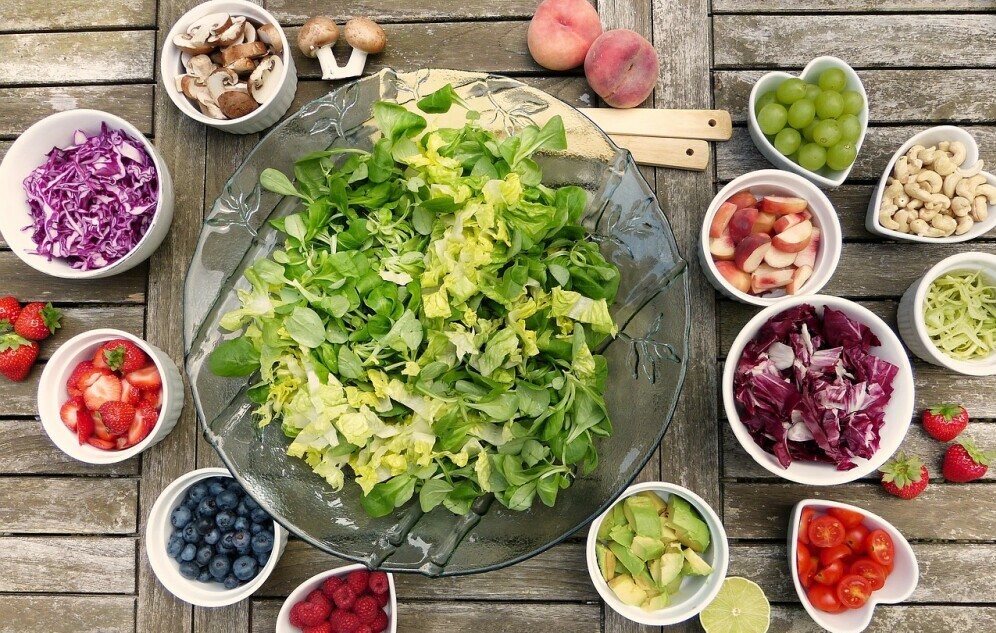You may have noticed more people around you opting for meals piled high with veggies, grains, and legumes. A plant-based diet, rich in these foods, is becoming a favoured way of eating for many. So what’s exactly behind this shift?
At its core, a plant-based diet focuses on foods primarily from plants. This includes not only fruits and vegetables, but also nuts, seeds, oils, whole grains, legumes, and beans. It doesn’t mean that you are vegetarian or vegan and never eat meat or dairy. Rather, you are proportionately choosing more of your foods from plant sources.

It’s important to understand that ‘plant-based’ doesn’t have a one-size-fits-all definition. The spectrum of plant-based eating can vary widely. For some, it means including a variety of plant foods with a sprinkling of animal products. For others, it translates to a strictly vegan diet, eschewing all animal-derived substances.
As we progress to the next section, I’ll highlight why many opt for this diet, citing its multiple health benefits, its lessened environmental impact, and the ethical standards it upholds. A plant-based lifestyle isn’t just about the food on your plate; it’s about making thoughtful choices that feel right for your body and the world around you.
The Advantages of Adopting a Plant-Based Diet
Switching to a plant-based diet comes with a bundle of benefits, contributing not only to personal well-being but also to the larger global picture. I’ll walk you through some significant perks of filling your plate with plants.
When it comes to your health, a plant-based diet shines, particularly in supporting heart health. A diet rich in vegetables, fruits, legumes, and whole grains can lower blood pressure and decrease the risk of heart disease. Moreover, this way of eating is linked to better weight management. Since plant-based foods are typically lower in calories yet high in fibre, they can help you feel full longer, reducing the urge for frequent snacking.

Another health advantage is diabetes prevention. Studies suggest that a diet composed chiefly of plant-derived foods can improve insulin sensitivity and reduce the risk of type 2 diabetes. The presence of antioxidants in fruits and vegetables also plays a role in combating chronic inflammation, a culprit in many lifestyle diseases.
Shifting focus to the environment, a lesser-known fact is that what you eat can influence your carbon footprint. A plant-based diet requires less water and land, and it generates fewer greenhouse gas emissions compared to diets high in animal products. It’s a sustainable choice that can alleviate some of the burdens on our planet’s resources.

Finally, the ethical dimension of a plant-based diet can’t be understated. By choosing plant-based options, you contribute less to the industries that raise animals in often harsh and unethical conditions. It’s a diet that echoes a respect for life and promotes animal welfare.
These points underscore that embracing a plant-based lifestyle has far-reaching positive effects. However, it isn’t without its challenges, which I will address in the following section. Understanding these potential drawbacks ensures you can approach plant-based eating with a realistic perspective and informed decisions.
Challenges and Limitations of Plant-Based Eating
Deciding to follow a plant-based diet is an impactful lifestyle choice, but it’s not without its set of unique challenges. You need to be aware of the potential pitfalls so you can navigate them successfully.
One concern with a plant-based diet is the risk of nutritional deficiencies. It can be tough to ensure you’re getting enough vitamin B12, omega-3 fatty acids, iron, calcium, and zinc – nutrients typically abundant in animal products. A well-planned diet is crucial so you don’t miss out on these essential nutrients.
Another reality is the social and cultural impact of changing your diet. Social gatherings often centre around food, and choosing plant-based can put you at odds with traditional menus. It may require a bit of social savvy to stick to your dietary choices without missing out on the fun.
The cost and availability of high-quality plant-based foods can also pose a hurdle. While the range of options is expanding, they can come at a premium price or may not be easily accessible in all regions. Budgeting and planning can mitigate these issues, though it does require extra effort.
Despite these challenges, the shift towards a plant-based diet is growing. The next section will guide you through some practical advice, ensuring that your transition is as smooth and enjoyable as possible.
Navigating a Plant-Based Lifestyle: Tips and Tricks
Adopting a plant-based diet can seem daunting at first, but with a few practical strategies, you can make the transition smoother and maintain your new eating habits in the long run.
UNDERSTAND PROTEIN SOURCES beyond meat. Beans, lentils, tofu, tempeh, and quinoa are fantastic options that provide the necessary nutrients your body needs.
DINING OUT doesn’t have to be a struggle. Research restaurants beforehand and look for dishes that can be easily adapted to fit a plant-based diet.
When TRAVELING, plan ahead by packing plant-based snacks and researching your destination’s food options. This ensures you’re never caught hungry without options aligned with your dietary choices.
SUPPLEMENTATION may be necessary to ensure you’re getting all your nutrients, particularly vitamin B12, iron, and omega-3 fatty acids, which can be scarce in a plant-based diet. Consult with a healthcare professional to tailor your supplement needs.

Above all, remember that perfection is not the goal. It’s about making choices that align with your values and health goals. Every plant-based meal is a step in the right direction.
